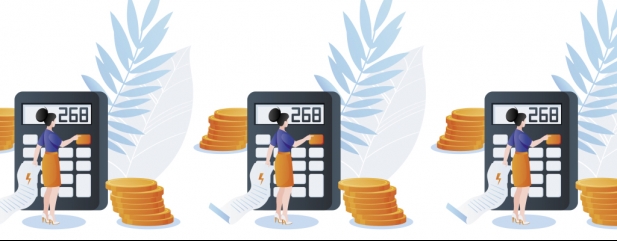Archived article
Please note that tax, investment, pension and ISA rules can change and the information and any views contained in this article may now be inaccurate.
My bills are rising. Should I pay less into my pension to free up money?

Given the cost-of-living crisis is increasing bills for everyone, is it still better to prioritise pension saving if you don’t need to access the money? And once you start taking an income, does it make sense to go ISA first? Or should it be ISA and pension together to get as much tax-free as possible?
Helen
Tom Selby, AJ Bell Head of Retirement Policy says:
The cost-of-living crisis is causing households across the country to review their budgets, including how and where people save for the future.
Anyone considering reducing their savings or cutting back on pension contributions should think about the impact it will have on their longer-term aspirations. See if you can make cutbacks elsewhere.
For most people a balanced approach combining easy access cash accounts, medium-term ISA or Lifetime ISA savings (where the latter is used towards a first home purchase), and longer-term pension or Lifetime ISA savings will likely be appropriate.
How much you commit to each will depend on your personal circumstances, priorities and goals. For example, some will prioritise saving for a first home, while others might be more focused on retirement.
The starting point of a solid savings plan should be paying off any high-cost debts and building up a rainy-day fund
for emergencies. You can then start to think about pensions and ISAs.
If you’re employed, then contributing to your workplace pension should be a priority as it benefits from both employer contributions and tax relief.
Beyond this, ISAs, Lifetime ISAs or SIPPs – or a combination of all three – could be the right option depending on your income tax bracket, age and long-term goals.
It can make sense for your pension to be the last asset you touch, particularly if you’re prioritising passing money onto loved ones after you die.
Pensions are extremely tax efficient on death as inheritance tax usually doesn’t apply, and leftover funds can be inherited tax-free if you die before age 75. If you die after age 75, the funds will be taxed in the same way as income when your beneficiary comes to make a withdrawal. ISAs will count towards your estate on death.
Another priority for lots of people will be minimising the amount of income tax they pay. This could be achieved by combining pension and ISA withdrawals.
For example, a 60-year-old who has already taken their 25% pension tax-free cash who needs £15,000 of income in 2022 could withdraw £12,570 from their SIPP – the personal allowance – and take the remaining £2,430 from their ISA. This would mean, assuming they had no other sources of income, that they would pay no income tax for the year.
DO YOU HAVE A QUESTION ON RETIREMENT ISSUES?
Send an email to asktom@sharesmagazine.co.uk with the words ‘Retirement question’ in the subject line. We’ll do our best to respond in a future edition of Shares.
Please note, we only provide information and we do not
provide financial advice. If you’re unsure please consult a suitably qualified financial adviser. We cannot comment on individual investment portfolios.
Important information:
These articles are provided by Shares magazine which is published by AJ Bell Media, a part of AJ Bell. Shares is not written by AJ Bell.
Shares is provided for your general information and use and is not a personal recommendation to invest. It is not intended to be relied upon by you in making or not making any investment decisions. The investments referred to in these articles will not be suitable for all investors. If in doubt please seek appropriate independent financial advice.
Investors acting on the information in these articles do so at their own risk and AJ Bell Media and its staff do not accept liability for losses suffered by investors as a result of their investment decisions.
Issue contents
Feature
Great Ideas
- Diversified Energy company delivers on dividends and offers an 11%-plus yield
- Disney has recovered some of its magic as subscriber growth beats expectations
- Premier Inn owner looks good if more people choose a staycation
- This fund is ideal for a more cautious investor wanting a bit of income
- Africa’s number two mobile provider delivers on sales and margins
- Building materials firm unfairly punished after latest trading update
Investment Trusts
News
- BT and Vodafone deals add to excitement in once dull telecoms space
- Grocery delivery platform Instacart files $24 billion IPO on the quiet
- Imperial Brands maintains the positive momentum behind the tobacco sector
- Nick Train resists the temptation to change his style after weak period
- Could new Greggs boss Roisin Currie be tempted to reset growth targets?

 magazine
magazine








